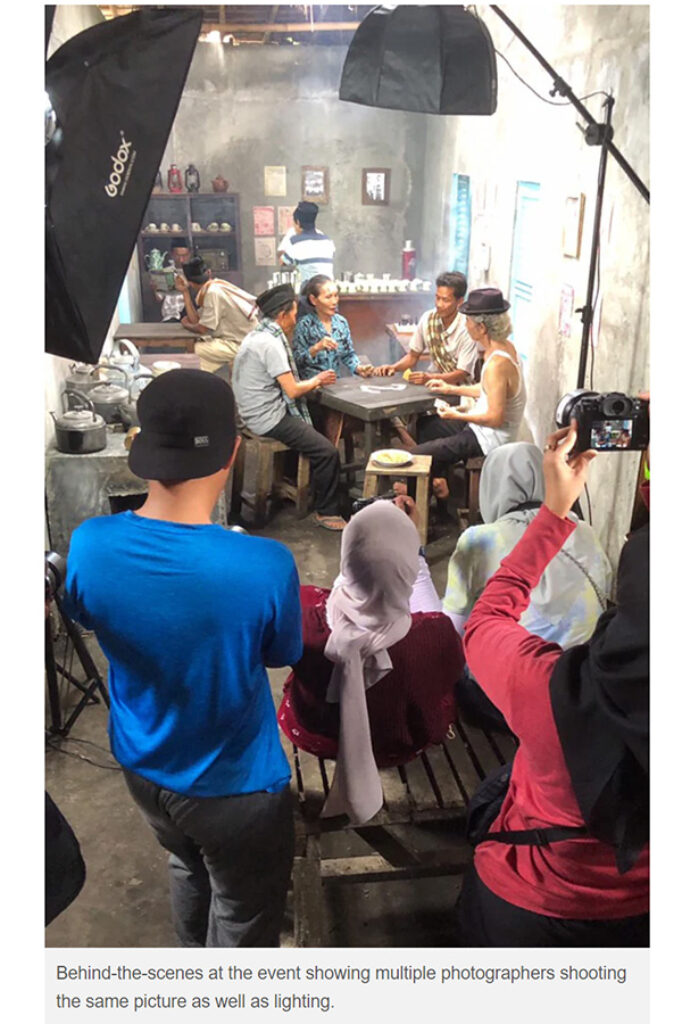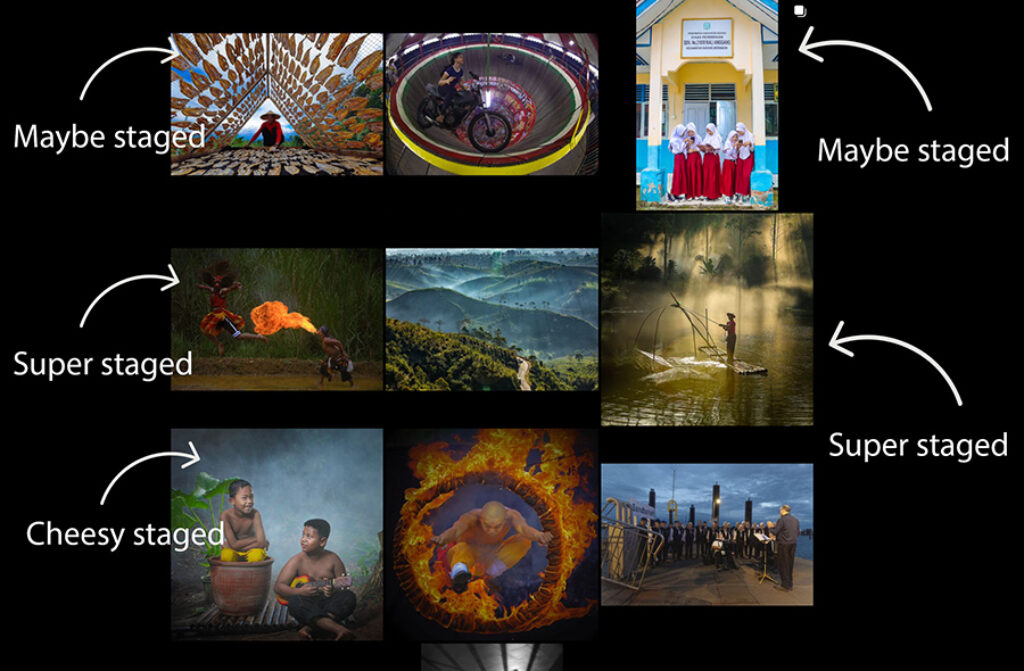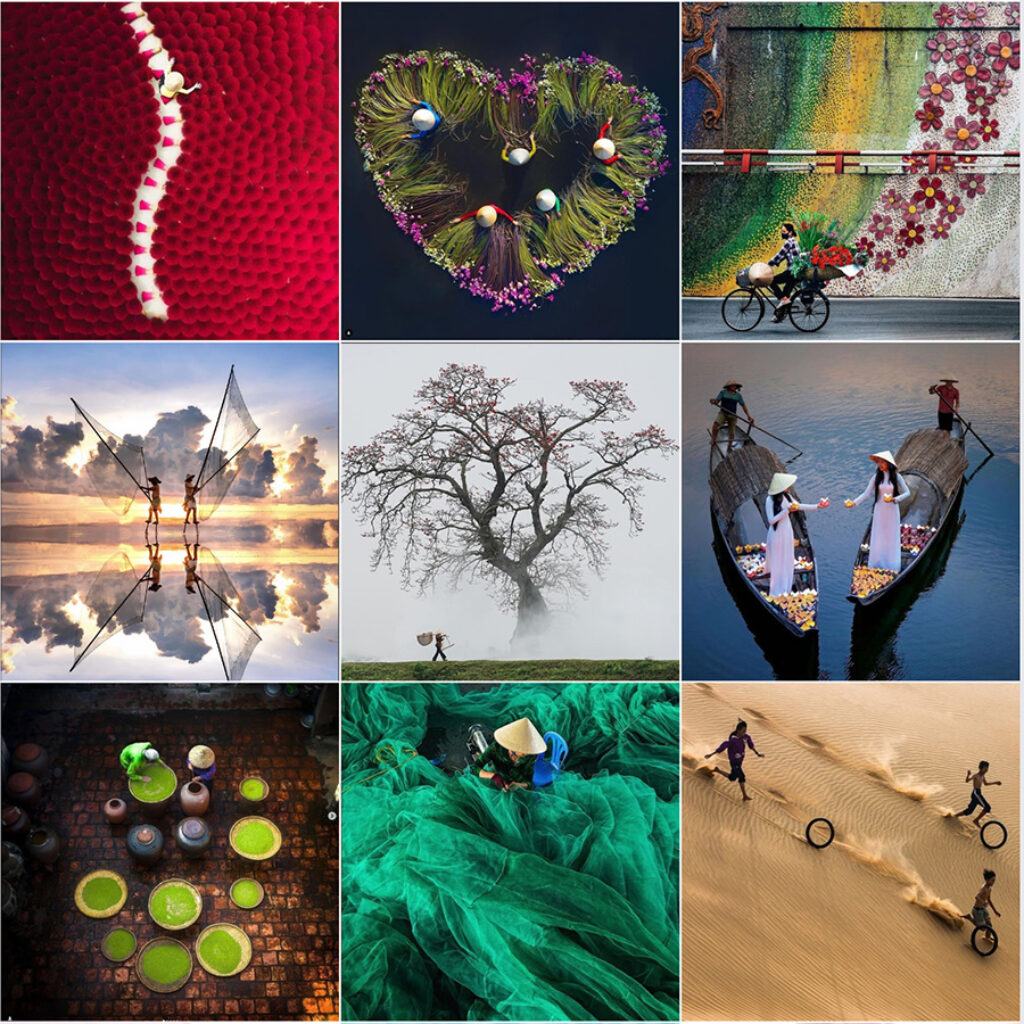Ah, the world of photography – where the line between candid images and artfully contrived scenes grows increasingly hazy. It’s as if the debate about staged photos and their place in photography competitions never quite loses its lustre. But wait, we’ve got another gem to share: the revelation of a prize-winning staged photograph in yet another photography competition. It seems that some competition organizers might need a refresher course on the authenticity of a photograph. So, let’s venture into this enthralling tale and ponder why staged photos are still in vogue, even when they raise an eyebrow or two, and continue to challenge the trust of discerning audiences.
The Disconcerting Reality of Staged Photos
Recent reports have unveiled a disturbing revelation: the winning photograph of yet another photo competition, an image that appeared to capture an emotionally charged and culturally significant moment, was not a candid slice of life but rather a carefully staged scene.
As you know I have been talking about the trend of travel photographers staging their travel images to win photo competitions, all while carefully forgetting to mention that these were planned and staged scenes. How convenient…
This revelation has left me once again questioning the trend of travel photography competitions around the World. Even after all I have been talking about here, and all the fake staged images that have already been caught winning competitions, I once again question the validity the expertise of such photo competitions.
The image
I actually remember seeing this image as it won this competition a couple of weeks ago (I do still follow the photo competition trends). Maybe because I am constantly on the hunt for “fake travel images”, this image did appear very suspicious to me. When you spend years taking photos in Asia and studying photographers shooting in Asia, you do get pretty good at detecting the bullshit. But I didn’t put much thought into this at the time, as I was in the middle of one of my photo tours. Until yesterday when I saw this article in PetaPixel.

The photograph in question was actually taken during a concept shoot that was created to promote the launch of the new Xt5 in Indonesia. This is absolutely not a candid image. This was planned, staged and acted by professional actors. The photographer, as it is most cased for staged images, simply stood in a line with other photographers and took the shot that was presented in front of him.

The photography contest organizers (CEWE) had initially praised the image for its emotional depth, composition, and cultural resonance, only to discover later that the entire scene had been carefully staged by the photographers. The deceit raises serious ethical concerns within the photography community and beyond.
And here is once again what shocks me most about this story: it has been over 10 years that photography competition organizers got caught awarding grand prizes for staged photos, before realizing that these images were staged and cancelling the award. How many times again does it have to happen before these organizers finally take this issue seriously?
Photography competition organizers should at least do their jobs
Let me show you how easy it is.
Let’s say I receive a submission from a photographer, in that case, Ms. Dikye Ariani. The photo looks great, I am thinking about selecting it for an award. It does look a little too perfect, and I suspect it may be staged. So I am doing something incredibly hard to do: I will look at that photographer’s Instagram page.

And this is only the very beginning of her Instagram feed. It was clearly enough for me to get suspicious about the way this photographer works. And if you actually keep scrolling down, it gets worse and worse…. Almost to the point where I can find many of the famous staged travel photos of Asia.
There you go. It took me 30 seconds to identify that this particular photographer may have been staging their submission. Then, wouldn’t it be easy to just email them and ask for clarification? It seems not.
The Troubling Triumph of Staged Photos
This incident, though disconcerting, is far from an isolated case. In the era of digital photography, staging scenes to win competitions has become disturbingly common. The question that begs an answer is why these staged photos continue to seize victory in contests, even when they perpetrate a breach of trust with both judges and audiences by blurring the line between art and deception.
And once again, just to be clear: photographers staging their travel images have nothing wrong in its core, people do what they want. It is terrible for the world of creativity (as we’ll discuss later), but the main criticism that I have with photographers like Ms. Dikye Ariani is the fact that they tried to hide the truth.
The original description for this image, which was probably sent to the photo competition organizers by the photographer was “The proprietress, the sole woman in the scene, welcomes the men from the village after a hard day’s work in the rice fields”.
Contrived? A blatant lie? Make your own opinion….
Can you imagine a photographer posting a photo of a lion after a visit to the zoo, with the description “this mighty animal is watching over his jungle territory, ready to catch wild prey”? No, it’s sitting in the zoo being bored to death!
One positive side of this story is that it seems that this photo competition isn’t just a money-grab scheme like so many others. CEWE (the organizer)is a photo-related company, offering photo-finishing products, prints, etc… Now you would think they would hire proper judges for their competition. Apparently not…
Why you shouldn’t stage your travel photos
I have already listed in numerous blog posts the reasons why I think it is wrong, but let me summarize that here again:
1. Visual Deception: Staged photos often present an illusion of perfection that’s difficult to attain with spontaneous shots. By orchestrating scenes with careful lighting and precise composition, photographers create an attractive facade that can deceive the discerning eyes of both judges and the general public.
2. Misleading Narratives: Staging enables photographers to craft narratives that, in some cases, misrepresent reality. In the pursuit of winning accolades, such images can perpetuate inaccurate stereotypes or romanticize cultures, thus fostering misconceptions and perpetuating cultural bias.
3. Betrayal of Trust: One of the most critical issues with staged photos is the betrayal of trust. When such images win competitions and their staging is not disclosed, it undermines the very essence of authentic photography and erodes the audience’s confidence in the integrity of the medium.
4. Lack of creativity in the world of photography: the more these images spread, the more photographers think that they need to take these images to win competitions, and the less creative these photographers become.
A brief example that I can relate to very recently: a world-renowned photographer recently came to Vietnam. I knew he was coming here and I was actually pretty excited to see the images he would come up with (as I live in Vietnam I like to see what other travel photographers shoot here). How hugely disappointed I was when I saw he ticked all the boxes of all the famous staged photos in Vietnam. 0 creativity, just copying photos that already exist.

The Importance of Authenticity in Travel Photography
As we contemplate the prevalence of staged photography in contests and travel photography as a whole, it’s essential to emphasize the value of embracing authenticity in this art form:
1. Truthful Storytelling: Authentic photography allows for genuine storytelling by capturing candid moments that reflect the reality of a place, culture, or situation. It fosters connections with the audience and presents the unfiltered truth.
2. Ethical Responsibility: Travel Photographers have an ethical responsibility to portray the world as it is. Failing to do so can mislead the public and contribute to cultural misunderstanding, discrimination, or exploitation. As I said in the past: if you go to a location with arranged models and a concept for your shoot, you are a commercial photographer, not a travel photographer.
In conclusion, the prevalence of staged photos in competitions is a troubling phenomenon that challenges the very essence of authentic photography. When photographers prioritize winning over truth and integrity, it undermines the essence of this art form. It’s essential for both photographers and competition organizers to recognize the importance of authenticity and ensure that photography contests continue to celebrate the beauty of genuine moments captured in the world.
All this in a perfect world of course…

I am totally with you.
Where as in Travel Photography I have let go soooo many opportunities, when I felt that the person in front of the camera did not feel comfortable and was maybe just too polite to refuse to be photographed. I do not feel good with photos taken by overpowering someone…
You are right Natascha. And like I say on my photo tours: if you feel uncomfortable or if you feel that your subject is uncomfortable, you will never take the time to work on the scene and get the best image out of it. So it’s best to interact first 🙂